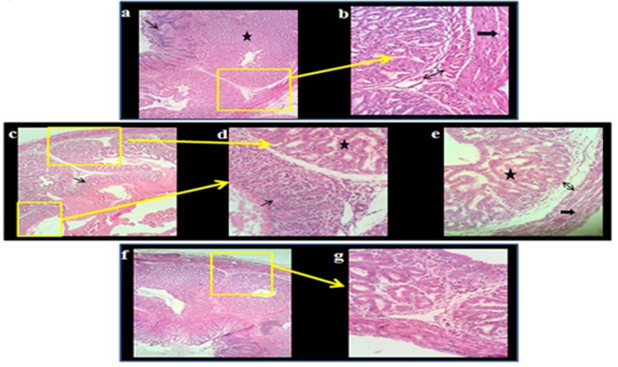Abstract
Avian cholera outbreaks are a serious threat to the health of poultry and overall stock viability resulting in terrible economic losses. Pasteurella multocida is the causative agent of avian cholera. This study was conducted to evaluate the antimicrobial activity of the seed extracts of Cuminumcyminum, an aromatic plant within the Apiaceae family, against avian cholera in broiler chickens. Five hundred fertilised chicken eggs were divided into three groups, control (C; n=300), second group (O; n=100) and the third group (O+U; n=100) and were injected with distilled water, P. multocida and P. multocida + Cuminumcyminum seed extract respectively. After 14 days of incubation, the embryos were extracted and the tissues processed for hematoxylin and eosin staining to study the histopathological changes in the stomach, intestine and spleen tissues. The tissues of P. multocida infected embryos demonstrated lesions, degeneration, atrophy, hemorrhage, necro- sis, karyolysis, congestion and desquamation whereas the control groups exhibited normal tissue histology. Interestingly, in spite of being infected by P. multocida, the tissues treated with Cuminumcyminum seed extract also demonstrated normal histology. The present study thus showed that Cuminumcyminum had an antibacterial role and protected the tissues from the damage induced by the avian cholera infection.
Full text article
Authors

This work is licensed under a Creative Commons Attribution-NonCommercial-NoDerivatives 4.0 International License.

